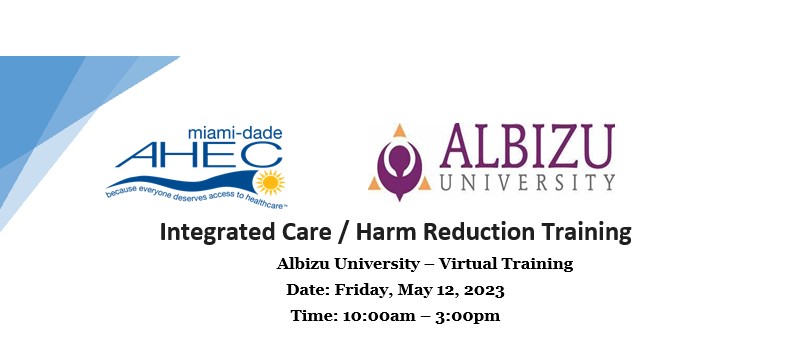Presented by: Amber Cahill, PsyD is an Assistant Professor in the Department of Family Medicine and Community Health at the University of Massachusetts Chan Medical School. She completed internship training at the Battle Creek VA Medical Center in the primary care/health psychology track and went on to complete a 2-year postdoctoral fellowship at the University of Massachusetts Chan Medical School in primary care, health psychology, and medical education. Dr. Cahill is the Director of Behavioral Science for the Fitchburg Family Medicine Residency, where she develops and implements a behavioral science curriculum that educates resident physicians in addressing mental health, substance use, and health behavior change in primary care. She is also faculty in the Center for Integrated Primary Care where she has co-created and led Project ECHO hubs for primary care providers who are new to treating opioid use disorders and prescribing buprenorphine.
Integrated Care / Harm Reduction Training
Summary: There are misconceptions and misinformation that have perpetuated the fields of medicine and psychology about who treats SUDs, how they are treated, and where treatment occurs. Through the lens of the current opioid use disorder (OUD) and opioid overdose epidemic, this presentation will examine the role of integrated primary care in addressing this public health crisis. This presentation will also review of how integrated primary care improves access to treatment for mental health and substance use disorders. Harm reduction-informed care will be discussed as a critical perspective when treating patients with SUDs. Part two of the presentation provide a review of behavioral health interventions for working with patients with OUD and other problematic substance use, with an emphasis on complexity and appreciating the patient’s social context. Learning Objectives: Recognize limitations in substance use disorder training and education across disciplines and the impact this has had on an inadequate treatment system. 1. Describe current state of opioid use disorder and how integrated primary care is uniquely positioned to provide access to treatment 2. Summarize the principles of harm reduction-informed care 3. Identify behavioral health interventions for opioid use disorder and other problematic substance use
